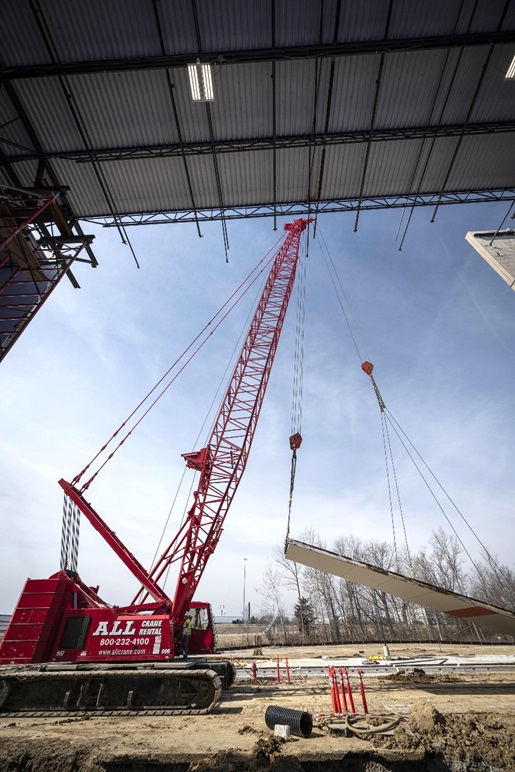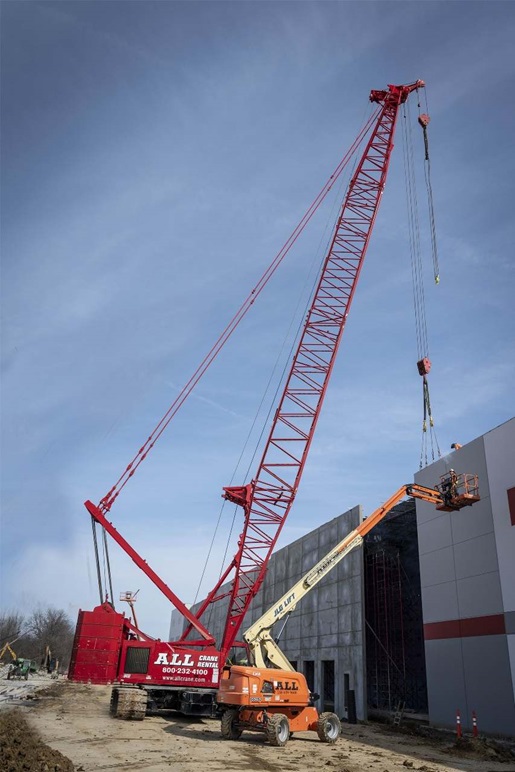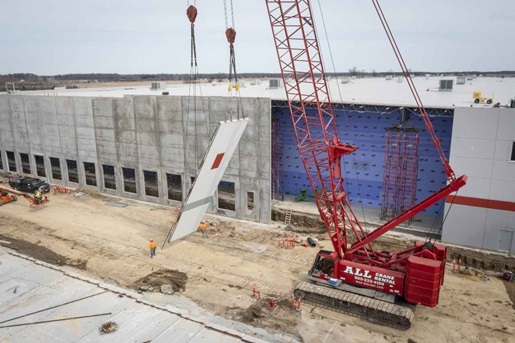
Choosing a crane for a construction project is usually a matter of finding the right tool for the job. This is especially true for a job site that needs one crane to perform multiple functions. A warehouse rehab project in Franklin, Indiana, showcased the capabilities of the Manitowoc 999 Series 3 lattice boom crawler crane. The stout crane assisted with both removing precast concrete panels as well as picking and setting replacement tilt wall sections.
The Manitowoc 999 was supplied by Central Rent-A-Crane, a member of the ALL Family of Companies. It has a 275-ton capacity and was configured with 130 feet of main boom and full counterweights. For its capacity range, it offers a powerful combination of high performance, easy mobilization and versatility, including a small footprint combined with high capacity, fast self-assembly, and 290 feet of reach.
The new concrete tilt wall was poured on-site using molds on the ground. Once cured, the crane was used to pick a concrete section off the ground and position it on the warehouse structure, holding it in place while it was secured by a team of technicians. Each panel was approximately 40 feet long and 8 to 10 feet wide.
Every lift required meticulous planning and careful execution due to the limits on how much bowing the poured sections would tolerate as they go from horizontal to vertical. By running both lines on the Manitowoc 999, the operator could connect at two points to pick the panel and stand it up with minimal pressure on the panel structure.
“It takes finesse,” said Tim Welty, sales representative for Central Rent-A-Crane. “You can’t simply run a single line to the end of a panel and hoist up. It would put too much pressure on the mid-point of the panel.” Pre-lift calculations and 3D modeling gave proof that the recommended solution would succeed.
Once positioned, the team on the ground braced each piece with adjustable bars to temporarily secure the panel until it could be permanently secured. Metal expanses poured inside each piece of tilt wall are welded together to form a permanent bond.
The crane was positioned between the warehouse and the pour line for the new panels. From this vantage, it could pick cured panels and swing to the destination. The same crane was also used to pull old precast panels from the warehouse to create room for the replacements.
“The Triple 9 is a versatile tool for Central to have in our fleet,” said Welty. “Its combination of size, power, and reach was perfect for this job, wherein, without it, our customer may have needed multiple cranes to achieve the same end.”



